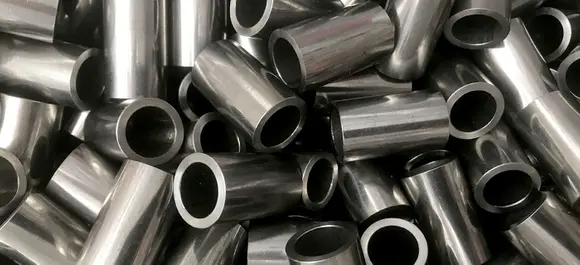Mobile:+86-311-808-126-83
Email:info@ydcastings.com
Optimizing Hydraulic Impellers for Enhanced Pump Efficiency and Performance Improvement
Understanding Hydraulic Impellers A Key Component in Fluid Dynamics
Hydraulic impellers are crucial devices widely used in various applications involving fluid motion and energy transfer, particularly within hydraulic systems. They play an essential role in the operation of pumps, turbines, and other machinery, enabling efficient movement and management of fluids in industrial and engineering contexts.
What is a Hydraulic Impeller?
An impeller is a rotating component of a pump or turbine, designed to enhance the movement of fluid by converting rotational energy into hydrodynamic energy. The hydraulic impeller consists of a series of blades or vanes arranged around a central hub. As the impeller rotates, it imparts motion to the fluid, causing it to flow outward from the center of the impeller. This process is central to the functionality of a hydraulic system, where the efficient transfer of energy is paramount.
How Hydraulic Impellers Work
The operation of a hydraulic impeller can be understood through the principles of fluid dynamics. When the impeller spins, centrifugal force acts on the fluid, pushing it radially outward. This movement creates a pressure difference between the inlet and outlet of the impeller, allowing for the efficient transport of fluids. The design of the impeller, including its size, shape, and blade configuration, significantly influences its performance, including flow rate and pressure capabilities.
In pumping applications, hydraulic impellers draw fluid into the pump through the suction inlet, where it is accelerated and directed towards the discharge outlet. Various impeller designs exist, including open, closed, and semi-closed types, each suited for specific applications based on desired flow characteristics and operational efficiency.
Applications of Hydraulic Impellers
Hydraulic impellers are employed across numerous industries, including
hydraulic impeller

1. Water Supply and Wastewater Treatment Impellers are integral to the functioning of water pumps, facilitating the movement of water for irrigation, municipal water supply, and treatment facilities.
2. Hydropower Generation In turbines, hydraulic impellers convert the kinetic energy of flowing water into mechanical energy, which is subsequently transformed into electrical energy.
3. HVAC Systems In heating, ventilation, and air conditioning systems, impellers are used in fans and blowers to redistribute air effectively, maintaining comfortable indoor environments.
4. Marine Applications Boat and ship propulsion often rely on hydraulic impellers, commonly found in water jet propulsion systems, allowing for efficient maneuvering.
5. Chemical Processing Impellers are essential in mixing, agitating, and transporting chemicals within reactors and storage tanks.
Designing Efficient Hydraulic Impellers
The design process for hydraulic impellers is driven by multiple factors, including the specific fluid being pumped, desired flow rates, pressure differentials, and energy efficiency targets. Computational fluid dynamics (CFD) simulations are frequently utilized to model impeller behavior and optimize designs before physical prototypes are manufactured. Additionally, considerations of materials and construction methods are crucial, as impellers often encounter corrosive and wear-prone environments.
Conclusion
Hydraulic impellers are indispensable components in fluid machinery, providing the necessary means to transport fluids efficiently in various applications. Understanding the principles behind their operation and design can significantly enhance the performance and reliability of hydraulic systems. As technology advances, the evolution of hydraulic impellers continues to impact industries ranging from energy to manufacturing, underscoring their importance in the realm of engineering and fluid dynamics.
-
Why Should You Invest in Superior Pump Castings for Your Equipment?NewsJun.09,2025
-
Unlock Performance Potential with Stainless Impellers and Aluminum End CapsNewsJun.09,2025
-
Revolutionize Your Machinery with Superior Cast Iron and Aluminum ComponentsNewsJun.09,2025
-
Revolutionize Fluid Dynamics with Premium Pump ComponentsNewsJun.09,2025
-
Optimizing Industrial Systems with Essential Valve ComponentsNewsJun.09,2025
-
Elevate Grid Efficiency with High-Precision Power CastingsNewsJun.09,2025











